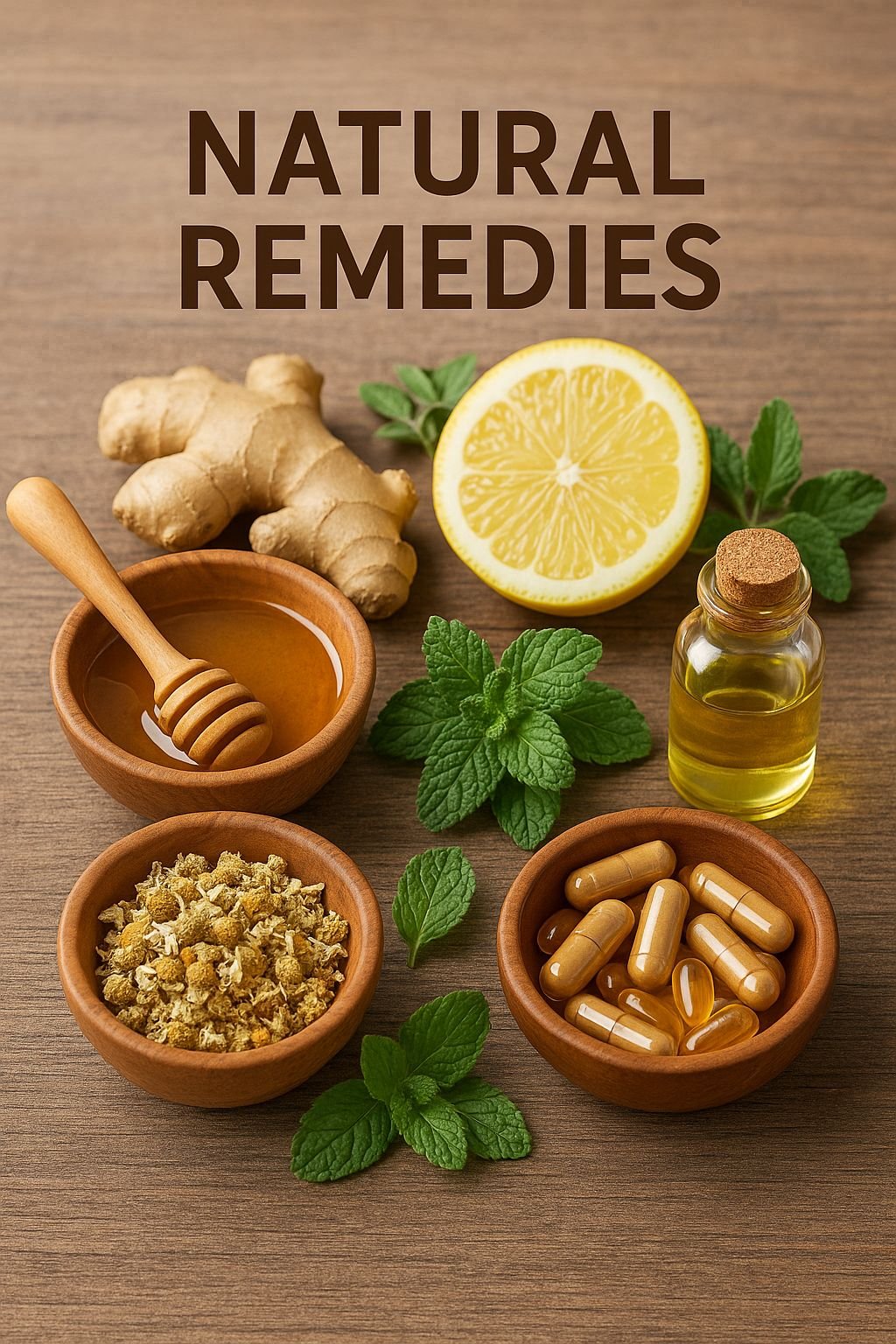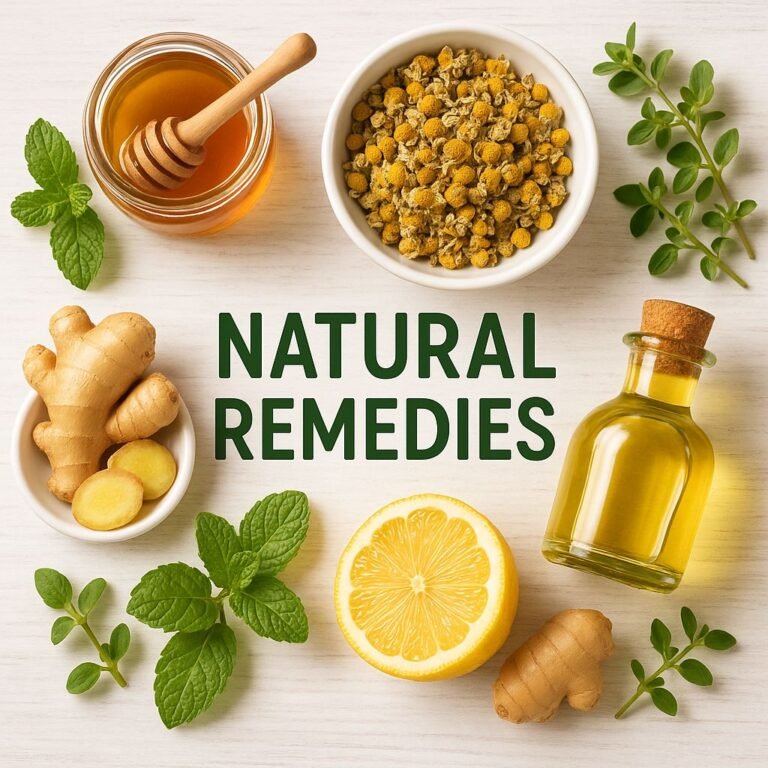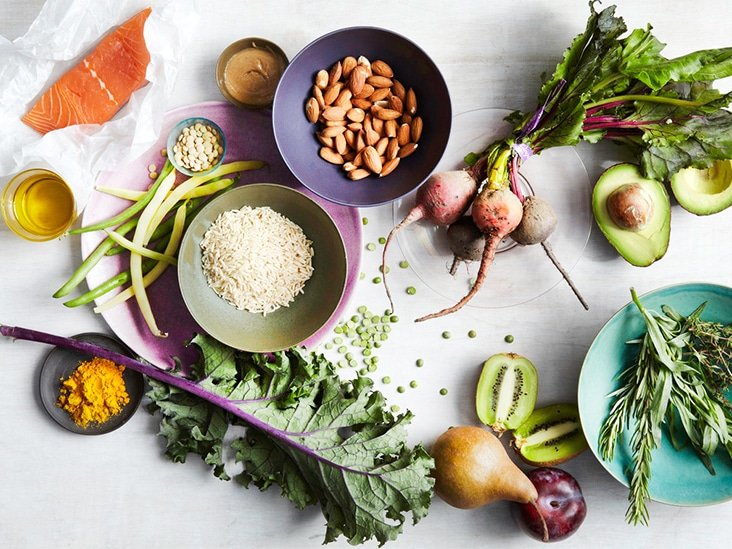Best Natural Gut Health Improvement Methods & Tips
- Naturally improving gut health means eating a variety of plant-based foods. Try to incorporate 30 different types into your diet each week to promote microbiome diversity.
- Fermented foods such as yogurt, kefir, and kimchi contain beneficial bacteria that can help improve digestion and immune response.
- Keeping stress levels under control is key for gut health. The gut-brain connection means that anxiety and stress can directly affect how well your digestive system functions.
- Staying hydrated is important for the mucosal lining of your intestines. This helps maintain the barrier that keeps harmful bacteria from entering your bloodstream.
- Intermittent fasting and eating meals at the right times can help promote gut repair processes and reduce inflammation in the digestive system.
Your gut is not just a food processor. It’s a complex ecosystem that houses trillions of microorganisms. These microorganisms can affect everything from your immune system to your mood. The good news is that you have more control over this ecosystem than you might think.
It’s no secret: your diet, lifestyle, and even mindset can dramatically impact your gut health. And when your gut is healthy, you’re healthy. Let’s take a look at how you can naturally support this crucial system without breaking the bank on pricey supplements or dealing with complex procedures.
Revolutionizing Gut Health: The Basics
Your gut microbiome is home to nearly 100 trillion bacteria – over 10 times the number of cells in your body. But these microbes aren’t just along for the ride; they play an active role in your well-being. They assist in food digestion, generate vital nutrients, control your immune system, and even chat with your brain. If this microbial community becomes unbalanced, it can set off a domino effect of health problems, from tummy troubles to mood swings.
Recent studies have found connections between gut health and conditions that were not previously considered related to digestion – including anxiety, depression, autoimmune diseases, and even skin conditions like eczema and psoriasis. The connection between the gut and the body is so significant that many health practitioners now consider gut health as the basis for overall health.
Your microbiome starts to develop from the moment you are born and continues to change throughout your life. While there are some things that can affect your gut health that you can’t change (like your genes and things you were exposed to as a young child), many of the things that have the biggest effect are things you can change.
The Importance of Gut Health: More Than Meets the Eye
Your gut isn’t just for digesting food. It’s home to almost 70% of the cells that make up your immune system, it’s responsible for producing more than 90% of your serotonin (also known as the “feel-good hormone”), and it plays a critical role in keeping your intestinal contents separate from your bloodstream. If your gut health declines, this barrier could be compromised, a condition often referred to as “leaky gut,” which could let harmful substances into your bloodstream.
Bad gut health can have a ripple effect on your entire body. It’s easy to spot digestive symptoms like bloating, gas, constipation, diarrhea, and heartburn, but the impact doesn’t end there. If your gut is out of balance, it can cause chronic inflammation that leads to joint pain, fatigue, food sensitivities, nutrient deficiencies, skin problems, and even cognitive issues.
One of the most fascinating discoveries in recent years is the connection between the gut and the brain. They are in constant communication through the vagus nerve, immune signaling, and the production of neurotransmitters. This is why problems with digestion often occur at the same time as stress, anxiety, or depression. The connection is bidirectional: mental health can affect the functioning of the gut, and the health of the gut can influence mental wellbeing.
Superfoods for a Stronger Gut
Your diet sets the stage for gut health. The best foods can encourage good bacteria, lower inflammation, fortify the intestinal barrier, and support regular, easy digestion. The most effective dietary approach? Variety. Studies have found that individuals who consume 30 or more distinct plant foods each week have far more varied gut microbiomes than those who consume fewer than 10. For more on maintaining a healthy lifestyle, check out these easy exercises to get you started on your fitness journey.
In addition to diversity, there are certain types of foods that you should pay special attention to. Foods that are high in fiber, fermented foods, and foods that are anti-inflammatory should be the main part of a diet that supports gut health. It’s also very important to limit foods that can disrupt the balance in your gut. These primarily include ultra-processed foods, too much sugar, and foods that could trigger inflammation like industrial seed oils.
Good Bacteria Love Fiber-Rich Foods
Fiber is not just a filler that helps to keep things moving, it’s also food for your good gut bacteria. When these microbes ferment fiber, they create short-chain fatty acids like butyrate, which feeds colon cells, lowers inflammation, and fortifies the gut barrier. However, the average American only consumes about 15 grams of fiber daily, which is far below the recommended 25-38 grams.
It’s important to note that not all fiber will have the same impact on your gut. Prebiotic fibers, which are the ones that feed the good bacteria in your gut, can be found in a variety of foods. Some of the most common sources of prebiotic fibers include garlic, onions, leeks, asparagus, bananas, oats, apples, flaxseeds, and seaweed. It’s also crucial to include a variety of different types of fiber in your diet, as different types of bacteria thrive on different types of fiber.
If you’re trying to add more fiber to your diet, it’s best to start slow to prevent any stomach discomfort. You should aim to add about 5 grams of fiber to your diet each week until you hit your goal. Make sure you’re drinking plenty of water as well to help the fiber work as effectively as possible. If you have a sensitive stomach, you may find that cooked fruits and veggies are easier to digest than raw ones at first.
Top 10 Prebiotic Foods You Should Include in Your Diet
Prebiotics are a type of plant fiber that act as food for the good bacteria in your gut. Unlike probiotics, which add new bacteria, prebiotics nourish the good bacteria already there. They are resistant to digestion in the upper GI tract and reach the colon where they are fermented by the gut bacteria.
Jerusalem artichokes, or sunchokes, are an excellent source of prebiotics, with high levels of inulin fiber that significantly boost beneficial bifidobacteria. Garlic and onions are more than just flavor boosters; they’re packed with fructooligosaccharides (FOS) that promote a diverse microbiome. Dandelion greens, often dismissed as weeds, are nearly 25% prebiotic fiber by weight and add a nice bitter touch to salads and sautés.
Top 10 Prebiotic Foods to Incorporate into Your Eating Habits
- Jerusalem artichokes (sunchokes): They contain inulin that enhances the growth of beneficial bifidobacteria
- Garlic and onions: These are rich in fructooligosaccharides (FOS) that aid in maintaining microbiome diversity
- Dandelion greens: They have almost 25% prebiotic fiber by weight
- Chicory root: It is often used as a coffee substitute and is a great source of inulin
- Asparagus: It provides both inulin and FOS prebiotics
- Leeks: They contain prebiotic compounds similar to those found in garlic and onions
- Green bananas: They are rich in resistant starch that nourishes beneficial bacteria
- Apples: The pectin fiber in apples supports the growth of Bifidobacteria and Lactobacillus
- Flaxseeds: They contain both soluble and insoluble fiber that supports a diverse gut bacteria
- Oats: They contain beta-glucan fiber that increases Lactobacilli and Bifidobacteria
Fermented Foods That Enhance Gut Flora
Fermented foods are natural probiotics, containing live beneficial bacteria produced through controlled microbial growth. These traditional foods have been a part of human diets for thousands of years, with almost every culture having their own variations. The fermentation process does not only preserve the food but also creates beneficial compounds and microbes that directly enhance gut health.
Yogurt and kefir are readily available fermented foods that contain Lactobacillus and Bifidobacterium strains, which can survive the trip through your digestive tract. To get the most out of these foods, look for products that have “live and active cultures” and little added sugar. Plant-based fermented foods like kimchi, sauerkraut, miso, and tempeh provide different types of bacteria and additional nutrients that go well with dairy-based fermented foods.
Begin with small servings of fermented foods, even as little as a tablespoon each day, and slowly add more as your microbiome gets used to it. The objective isn’t to eat a lot, but to consistently introduce a variety of good bacteria. While you can use store-bought versions, raw, unpasteurized types have more live cultures. Just make sure they come from trustworthy sources that follow good food safety procedures.
Foods That Help Soothe Digestive Problems
When there’s constant inflammation in the gut, the balance of the microbiome can be thrown off and the lining of the intestines can be harmed. Luckily, some foods have strong anti-inflammatory properties that can help soothe this inflammation and aid in healing. Omega-3 fatty acids, which are found in fatty fish, walnuts, and flaxseeds, can counteract inflammatory omega-6 fats and help reduce inflammation at the cellular level.
Let’s talk about turmeric. Its active compound, curcumin, blocks inflammatory pathways and shows potential for managing inflammatory bowel conditions. To get the most out of it, combine turmeric with black pepper and a source of healthy fat. Ginger is another anti-inflammatory giant that specifically targets digestive inflammation and can reduce symptoms such as nausea, bloating, and intestinal cramping.
Colorful berries, dark leafy greens, and cruciferous vegetables are full of polyphenols and antioxidants that neutralize free radicals and reduce oxidative stress in the gut. These plant compounds can actually change how genes express themselves, suppressing inflammatory processes. Including a rainbow of these foods daily provides a variety of protective compounds that work together to soothe digestive distress.
What Foods Should I Avoid for a Healthy Gut?
While some foods promote gut health, others can harm it. Ultra-processed foods often contain emulsifiers, artificial sweeteners, and preservatives that can upset the microbiome and intestinal barrier. Research indicates that these food additives can decrease microbial diversity and increase intestinal permeability in a matter of days. Opt for whole foods or minimally processed alternatives with familiar ingredients whenever you can. For a healthier lifestyle, consider incorporating easy exercises to get started on your fitness journey alongside your dietary changes.
Refined sugar is like a feast for yeast and harmful bacteria, which can multiply and push out the good bacteria. Eating a lot of sugar can also make your gut more permeable and cause inflammation. Industrial seed oils, like soybean, corn, and canola, are also problematic because they have a lot of omega-6 fatty acids. If you eat too many of these, they can cause inflammation.
Some people may experience digestive discomfort from certain foods that are otherwise considered healthy. Common triggers include gluten, dairy, FODMAPs (fermentable carbohydrates found in some fruits, vegetables, and grains), and nightshades. If you suspect you have specific food sensitivities, it may be beneficial to work with a healthcare provider to identify your personal triggers through an elimination diet, rather than unnecessarily restricting your diet over a long period of time.
Everyday Routines That Improve Gut Health
Although what you eat is the basis of gut health, your everyday routines and the way you live can have a significant impact on your microbiome. Everything from when you eat to how you exercise can influence the health of your gut. The great part is that you can see the positive effects of these changes in just a few days or weeks, with the most significant changes happening over several months of sticking with these routines.
Your gut microbiome is quick to react to changes in your lifestyle. Studies have found that working out can boost the good bacteria in your gut in as little as six weeks. Similarly, getting better quality sleep can increase the diversity of your gut microbiome in roughly the same amount of time. These habits all work together. Better sleep helps you manage stress, which is good for your gut. A healthy gut helps your body absorb the nutrients it needs to stay active.
Ways to Stay Hydrated for Better Digestion
Every part of digestion, from breaking down food to moving it through your digestive system, needs water. Staying hydrated helps your intestines’ mucosal lining, which is a crucial barrier between the contents of your gut and your bloodstream. Most adults need 2.7-3.7 liters of total water each day, with about 20% of that coming from food and the rest from drinks.
When you drink is just as important as how much you drink. Downing a glass of water half an hour before you eat prepares your digestive system and helps you avoid overeating. Also, try not to drink too much while you’re eating. This can dilute your stomach acid and digestive enzymes. If you find it hard to drink plain water, herbal teas are a great alternative. Ginger, peppermint, chamomile, and fennel teas not only keep you hydrated, but they also actively help your digestive system.
Think about your water intake. Chlorine, which is necessary for eliminating harmful bacteria, can be found in tap water and can possibly affect gut microbes. If you can, use a high-quality filter that eliminates chlorine but retains beneficial minerals. To give your gut a little extra support, add a pinch of high-quality sea salt or a squeeze of lemon to your water every now and then. This will provide trace minerals and support the production of stomach acid.
Why You Should Stick to a Regular Eating Schedule and Watch Your Portions
Our digestive systems are creatures of habit. Eating at the same time every day can help stimulate the production of digestive enzymes and encourage the body’s natural cleaning waves (also known as the migrating motor complex) that help clear out the digestive tract between meals. These cleaning waves can only happen when you’re not in the process of digesting food, which is why it’s not a good idea to snack all day.
Intermittent fasting has been proven to be beneficial for gut health. It can reduce inflammation, improve barrier function, and increase microbial diversity. Even a basic 12-hour overnight fast (for example, finishing dinner at 7 PM and eating breakfast at 7 AM) gives your digestive system a much-needed break. During these fasting periods, your gut cells activate repair mechanisms and remove damaged cellular components.
The size of your meal can affect how well you digest it. Eating too much can strain your digestive system, which could result in incomplete digestion, bacterial growth, and unpleasant symptoms such as bloating and gas. The Japanese have a practice called “hara hachi bu” which means eating until you are 80% full. This helps to support good digestion and provides the right amount of nutrition. For more insights, you can explore the benefits of eating healthy. This is easier to do if you eat slowly and consciously, which allows your body to feel full.
Exercise: It’s More Important Than You Think
Exercise is not just about losing weight and building muscle; it is also about improving your gut health. Regular physical activity can increase the diversity of your gut microbiome, speed up your digestion, and reduce inflammation in your body, including your gut. You don’t have to run a marathon to reap these benefits. Even a simple 30-minute walk every day can make a big difference.
Exercise has a unique impact on gut health. Cardio workouts can improve blood flow to your digestive organs, which helps deliver oxygen and nutrients while removing waste products. Resistance training can build muscle that supports metabolic health, which can indirectly benefit your gut. Yoga can specifically target digestive health through twisting poses that massage your internal organs and stimulate peristalsis, the wave-like contractions that move food through your system.
Exercise is a great way to boost gut health, and timing your workouts can help you get the most benefit. Taking a short walk after meals can aid digestion and help regulate blood sugar levels. More intense workouts are best done 1-2 hours after eating or on an empty stomach. Pay attention to how your body responds to exercise. If you notice that your workouts consistently cause digestive problems, try changing the timing, intensity, or type of exercise until you find what works best for you. For those just starting out, consider these easy exercises to find the right balance for your gut health.
How to Relieve Stress for Better Gut Health
Because the gut and brain are connected, stress can directly affect how your digestive system works. If you’re feeling stressed or anxious, your body will take blood away from your digestive system, slow down the production of enzymes, and change how your gut moves. Long-term stress can also change the makeup of your microbiome, which can lead to harmful bacteria taking over the beneficial ones. This is why it’s so important to regularly manage your stress—not just for your mental health, but for the health of your gut as well.
Even spending just 10-15 minutes each day to reduce stress can help your digestive system significantly. The exact method you use doesn’t matter as much as making sure you do it consistently. Find a method that works for you and stick with it. Your gut will thank you by digesting food better, reducing inflammation, and being more resilient when you occasionally eat something you shouldn’t.
Understanding the Gut-Brain Connection
Your gut and brain are always talking to each other through a system that scientists refer to as the gut-brain axis. This two-way street includes the vagus nerve (the longest nerve that comes directly from the brain), immune signaling molecules, and neurotransmitters that are made by gut bacteria. Interestingly, your gut makes more than 90% of your body’s serotonin, a neurotransmitter that helps control mood, sleep, and appetite.
The intimate relationship between the gut and the brain is why emotions can cause physical reactions in the digestive system. For example, when you’re nervous, you might feel “butterflies” in your stomach, or you might experience stomach cramps when you’re anxious. This relationship also explains why people with digestive disorders often also have mood disorders. Research shows that people with irritable bowel syndrome (IBS) are more likely to have anxiety and depression, and people with anxiety disorders often have digestive problems.
What’s great about this is that it’s a two-way street. While stress can negatively affect gut health, improving gut health can also improve mood and resilience to stress. By nurturing a healthy microbiome through diet and lifestyle, you can support the optimal production of neurotransmitters that regulate mood and help manage the stress response, creating a positive feedback loop for improved gut-brain health.
5 Ways to Use Mindfulness to Aid Digestion
- Diaphragmatic breathing: Breathing deeply from your belly can activate the “rest and digest” response of your parasympathetic nervous system, which can improve your digestion and reduce your stress hormones
- Mindful eating: Chewing your food thoroughly, eliminating distractions while you eat, and really savoring the flavors of your food can all enhance your digestion from the very first bite
- Progressive muscle relaxation: This practice of tensing and then releasing your muscles one group at a time can reduce physical tension that might be impairing your digestion
- Meditation: Regularly practicing meditation can reduce markers of inflammation and encourage beneficial shifts in your gut bacteria
- Body scanning: This practice of systematically paying attention to sensations throughout your body can help you identify and release tension that might be affecting your digestion
Quality Sleep: A Key to Gut Health
Sleep and gut health have a reciprocal relationship. Poor sleep can change the composition of your gut bacteria and increase the permeability of your intestines, while imbalances in your gut can disrupt the hormones that regulate your sleep, like melatonin and cortisol. To break this potential negative cycle, it’s important to prioritize both the quality of your sleep and the health of your gut at the same time.
Studies show that even a brief disruption in sleep can decrease the good bacteria in your gut and increase the ones that cause inflammation. A remarkable study showed that just two nights of not getting enough sleep can change your microbiome in ways that are similar to metabolic disorders. When you eat is also important—eating too close to when you go to bed can mess up both your sleep and your digestion, as your body tries to rest and digest food at the same time.
Building a sleep schedule that aids in gut health means not eating big meals 2-3 hours before you go to bed, cutting back on alcohol and caffeine (they both mess with your sleep), and going to bed and waking up at the same time every day. For those who are especially sensitive, foods with natural melatonin—like tart cherries, kiwi, and ginger—can help you sleep better if you eat them in the evening.
Natural Supplements That Aid Digestive Health
Even though food should always be the basis of gut health tactics, some supplements can offer targeted support, especially during periods of heightened stress, travel, or recuperation from sickness. Quality is extremely important with supplements—opt for companies that check for strength and purity, preferably with third-party verification. Always seek advice from healthcare providers before starting supplements, especially if you have pre-existing health conditions or are on medication.
When using supplements, it’s important to be realistic and strategic. Instead of taking a bunch of different supplements all at once, try taking turns with different ones to address specific needs. Keep track of how your body responds and adjust accordingly. Keep in mind that supplements are most effective when they’re used to support a good diet, they can’t make up for a bad diet or unhealthy lifestyle habits.
Selecting the Best Probiotics
When it comes to probiotics, more doesn’t always mean better. Different strains of bacteria play different roles in your gut, so the best probiotic for you will depend on your individual health goals. For maintaining overall gut health, multi-strain formulas containing species of Lactobacillus and Bifidobacterium have been shown to be effective. If you’re dealing with antibiotic-associated diarrhea, there’s substantial evidence that Saccharomyces boulardii (a beneficial yeast) can help.
When choosing a probiotic, don’t be swayed by marketing hype. Instead, pay attention to the specific strains (including genus, species, and strain designation), colony-forming units (CFUs), and guaranteed potency through the expiration date. Storage requirements are also important—some probiotics need to be kept in the fridge to stay effective. Timing can also affect how well they work; for instance, spore-based probiotics can be taken with food, while others may be more effective if taken between meals.
Understanding Digestive Enzymes and When They’re Necessary
Digestive enzymes are responsible for breaking down the food we eat into smaller, more manageable nutrients that our bodies can absorb. Although our bodies naturally produce these enzymes, factors such as age, stress, certain health conditions, or previous gastrointestinal infections can lead to decreased production. In these instances, supplemental enzymes can be beneficial. They can offer temporary support during the digestive healing process or aid in managing specific food intolerances.
A good digestive enzyme supplement will usually contain amylase (for breaking down carbohydrates), protease (for breaking down proteins), and lipase (for breaking down fats). Some specialized formulations might also include extra enzymes such as lactase for digesting dairy or alpha-galactosidase for digesting gas-producing foods like beans and cruciferous vegetables. Unlike probiotics, enzymes are most effective when taken right before or with meals to directly aid the digestive process.
Natural Herbs and Spices for Gut Health
Traditional medicine from around the world has long recommended certain herbs and spices for digestive health. Modern science is increasingly confirming these traditional uses, identifying the active compounds and how they work. Slippery elm bark becomes a soothing gel-like substance when mixed with water, providing a protective coating for irritated digestive tissues. Marshmallow root works in a similar way, providing a mucilage that soothes inflammation and supports the growth of good bacteria.
When consumed before meals, digestive bitters such as gentian, dandelion, and chamomile can help stimulate digestive secretions, improving the breakdown of food and nutrient absorption. Additionally, carminative herbs like fennel, peppermint, and ginger can help reduce gas and bloating while promoting healthy gut motility. These herbs can be consumed in various ways, such as in teas, tinctures, or as whole spices in cooking, making them easy and accessible options for daily digestive support.
Easy One-Week Gut Reset Plan
From time to time, your digestive system needs a clean slate. A well-organized gut reset isn’t about limiting or depriving yourself—it’s about filling your body with nutrient-rich foods that reduce inflammation, support good bacteria, and promote healing in the intestines. This plan for the week emphasizes what to include rather than what to exclude, focusing on straightforward, sustainable habits that can jumpstart better gut function.
Preparation is the secret to a successful reset. Fill your kitchen with foods that are good for your gut, try to avoid social events that revolve around food if you can, and manage your expectations. You may experience some temporary changes in your digestion as your body adapts, but most people say they have more energy, less bloating, and better digestion by the end of the week. Use this reset as a starting point to figure out what works best for your specific body.
What to do each day
Day 1: Concentrate on staying hydrated. Aim to drink 2-3 liters of water, herbal tea, or fruit-infused water throughout the day. Try to incorporate 1-2 cups of bone broth or vegetable broth into your meals. Avoid alcohol, caffeine, and drinks that are high in sugar.
Day 2: Focus on prebiotic foods. Incorporate a minimum of 5 servings of vegetables and fruits that are rich in prebiotics such as garlic, onions, leeks, asparagus, green bananas, and apples.
Day 3: Begin eating fermented foods. Incorporate small amounts (1-2 tablespoons) of yogurt, kefir, sauerkraut, or kimchi into your meals throughout the day.
Day 4: Prioritize foods that fight inflammation. This includes fatty fish, turmeric, ginger, berries, and leafy greens. Try to avoid processed foods and added sugars as much as possible.
Day 5: Make fiber diversity a priority. Try to eat 8 or more different types of plant foods today, such as a variety of fruits, vegetables, nuts, seeds, and legumes.
Day 6: Aid in detoxification. Consume cruciferous vegetables, beets, artichokes, and lots of purified water to help your body’s inherent detoxification processes.
Day 7: Engage in conscious eating. Listen to your body’s hunger and fullness signals, chew your food well, avoid distractions while eating, and enjoy every mouthful.
What to Buy and How to Prepare
Plan your shopping and meal prep to make your gut health goals easier to achieve. Buy fresh produce that keeps well in the fridge (like cabbage, carrots, beets, and apples), along with frozen fruits and veggies for easy access. Stock your pantry with canned beans, herbs, spices, vinegars, and healthy oils. Cook large amounts of versatile foods like roasted vegetables, quinoa or brown rice, and proteins, so you can combine them in different ways all week. For more tips on improving your gut health, check out this guide on gut health.
How to Tell If Your Gut Health Is Getting Better
You won’t see a change in your gut health overnight. It usually takes time. The most common signs of improved gut health include better digestion, less gas, and decreased bloating. Most people find that their bowel movements become more regular and they experience less discomfort. As the inflammation in your gut decreases and your gut barrier gets stronger, you may find that you can eat foods that you previously couldn’t without experiencing discomfort.
Aside from improvements in digestion, you should also look for overall health improvements that indicate your gut health is getting better. This can include better quality of sleep, more consistent energy levels throughout the day, clearer skin, and improved mood. These are all signs that your gut microbiome is healthier. Some people also report less joint pain and fewer headaches as their overall inflammation decreases.
- Regular and healthy bowel movements
- Less bloating, gas, and stomach discomfort
- Reduced food allergies or reactions
- Increased energy and less fatigue
- Stable mood and clear thinking
- Clear skin and better complexion
- Stronger immune system with fewer minor sicknesses
- Less cravings, especially for sweet foods
Keep a simple journal to monitor your progress, noting changes in diet, digestive symptoms, energy levels, and overall health. This can help you spot patterns and identify what triggers or supports your gut health. Remember that healing is not always a straight line—temporary setbacks are normal as your body adjusts to new routines.
Next Steps Towards a Healthier Gut
Your path to a healthier gut is a personal and ongoing one. Start with the strategies that seem easiest for your current lifestyle, and then gradually add more as they become sustainable habits. Remember, consistency is more important than perfection. Small, regular steps will yield greater long-term benefits than occasional dramatic changes. If you have persistent symptoms or complex health issues, consider working with a healthcare provider who specializes in digestive health. Your gut microbiome is highly responsive to positive changes, and every healthy choice you make helps improve your overall health. Gut Research Institute provides evidence-based resources for those who want to learn more about personalized gut health optimization.
Commonly Asked Questions
- How soon will I see a change in my gut health?
- Do I need to take supplements to better my gut health?
- Can stress really have a big impact on my digestion?
- What is the difference between food allergies and gut health problems?
- Should I test my microbiome?
- Is a plant-based diet the best for gut health?
How much time does it take to naturally improve gut health?
The time it takes to see an improvement in gut health can greatly vary depending on where you’re starting from, the specific changes you’re making, and your individual body. Some changes can have quite fast effects—many people have reported less bloating and more energy within days of drinking more water and eating less ultra-processed foods. The microbiome itself can start to shift within 24-48 hours of dietary changes, though these initial shifts are often temporary unless the new pattern continues.
Healing, especially for those with long-term digestive problems, usually takes more time. The intestinal lining regenerates about every 2-3 weeks, so many people see major improvements around the one-month mark of consistent dietary and lifestyle changes. For those addressing complex conditions like SIBO (small intestinal bacterial overgrowth), IBS, or leaky gut, the journey may take several months of targeted strategies. Patience and persistence pay off—the gut healing journey is often not a straight line but usually trends positive with consistent support.
Does my gut health have any impact on my mental health?
Research into the gut-brain connection is one of the hottest topics in the field of microbiome studies, and there is a growing body of evidence that suggests that the health of your gut can have a significant impact on your mental health. The bacteria in your gut produce neurotransmitters like serotonin, GABA, and dopamine, which are traditionally thought to be associated with brain function and mood regulation. The vagus nerve acts as a direct line of communication between your gut and your brain, and immune signaling and bacterial metabolites also play a role. For more insights on the importance of maintaining a healthy lifestyle, check out the benefits of eating healthy.
Studies have found that the gut bacteria in people with specific psychiatric disorders is often noticeably different from those without these disorders. In some extraordinary research, when gut bacteria from humans with depression was transferred to lab animals, the animals started to exhibit depressive behaviors. This indicates a causal relationship, not just a correlation. On the other hand, certain strains of probiotics have shown to have antidepressant and anti-anxiety effects in both animal and human studies.
What this two-way relationship means is that focusing on gut health can be a potent additional method for those dealing with mood disorders, anxiety, or conditions related to stress. Nutritional psychiatry – a blossoming field that centers on how dietary habits affect mental health – highlights gut-healthy foods as the bedrock of psychological health.
“The gut microbiome has a profound impact on every facet of our health. It influences everything from our metabolism to our mood, our immune response to our cognitive abilities. The foods we choose to consume each day can either nourish beneficial bacteria or harmful bacteria. This basic truth gives us an incredible amount of control over our own health.” – Dr. Emeran Mayer, a gastroenterologist and the author of “The Mind-Gut Connection”
Is it necessary to take probiotics daily?
Not everyone needs to take probiotics daily, especially if they regularly consume fermented foods and live a lifestyle that supports gut health. However, there are certain situations where consistent probiotic use may be beneficial, such as after antibiotic treatment, for managing certain digestive conditions, during periods of high stress, or when traveling. Many gut health experts recommend using probiotics strategically and cyclically, based on your body’s current needs and responses, rather than as a daily supplement for life.
How are prebiotics different from probiotics?
Prebiotics and probiotics are both essential for gut health, but they aren’t the same thing. Probiotics are living microorganisms that can have health benefits when taken in the right quantities. They include certain types of bacteria (such as Lactobacillus and Bifidobacterium species) and some yeasts (like Saccharomyces boulardii) that can temporarily live in your gut and help with digestion. For those interested in learning more about health and wellness, you might also explore easy exercises to get started on your fitness journey.
Unlike probiotics, prebiotics are non-digestible food components that selectively feed the beneficial bacteria that already live in your gut. They essentially act as fertilizer for your microbiome, promoting the growth and activity of helpful microbes while potentially inhibiting harmful ones. Common prebiotics include inulin, fructooligosaccharides (FOS), galactooligosaccharides (GOS), and resistant starch.
It’s important to understand that prebiotics and probiotics go hand in hand. If you’re only taking probiotic supplements and not addressing your diet, you’re not going to get very far. Beneficial bacteria, whether they’re already in your gut or you’re adding them through supplements, need proper nourishment (prebiotics) to thrive and reproduce. That’s why diverse plant foods are the backbone of gut health. They provide both the fiber that becomes prebiotic material and numerous phytonutrients that influence the composition and function of your gut microbes.
Does intermittent fasting boost gut health?
There are many ways intermittent fasting can benefit gut health. When you fast, your digestive system starts a cleaning process called the migrating motor complex (MMC). This process clears out any leftover food particles and bacteria in the GI tract, which could help prevent bacterial overgrowth. Fasting also starts a process called autophagy, which is a cellular cleaning process. This process gets rid of damaged parts and helps improve how cells work all over the body, including in the lining of the intestines.
Studies indicate that intermittent fasting could boost microbial diversity, lower inflammation, and improve intestinal barrier function. These benefits seem especially useful for conditions related to intestinal permeability (also known as “leaky gut”) and metabolic disorders. Nonetheless, fasting isn’t suitable for everyone—people with specific medical conditions, a history of disordered eating, pregnancy, or significant underweight should avoid fasting or only do so under medical supervision.
What is the impact of antibiotics on gut health and how can I counteract it?
Antibiotics, though they can be medically necessary, have the potential to greatly upset the balance of the gut microbiome by eliminating beneficial bacteria along with harmful ones. A single round of antibiotics can diminish the variety and number of gut bacteria, with some research indicating that the effects can persist for months or even years following treatment. This upset can cause digestive symptoms, make you more prone to infections like C. difficile, and possibly contribute to more chronic health problems.
When you need to take antibiotics, there are several things you can do to help protect your gut health. Try to leave a gap of 2-3 hours between taking your antibiotic and your probiotic to stop the antibiotic from killing the probiotic. Eating prebiotic foods can help to feed the good bacteria that are left. After you’ve finished your course of antibiotics, you might want to follow a more intensive gut repair protocol. This could include taking a higher dose of probiotics (especially Saccharomyces boulardii and Lactobacillus species), eating fermented foods, and eating lots of different plant fibers.
The best course of action is to avoid overuse of antibiotics. Only take them when absolutely necessary and when prescribed by a doctor. If you have a minor infection, consider asking your doctor if it might be better to wait and see if your body can fight it off on its own before starting antibiotics. If you do need to take antibiotics, make sure to take the full course to avoid antibiotic resistance. At the same time, you should also take steps to support your microbiome.






